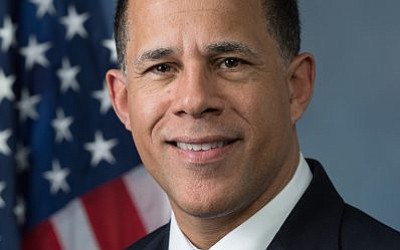(NNPA) — Two years ago on April 12, 2015, Freddie Gray’s life was lost while in custody of the Baltimore City Police Department (BPD). The civil unrest and uprising that followed—involving residents in some of Baltimore’s poorest and most segregated neighborhoods—jolted the City to confront systemic problems: racial injustice, entrenched poverty, mistrust between the community and police, blighted neighborhoods, and the American Dream not only deferred but simply out of reach. While achieving lasting change on many social and economic issues has been difficult to realize, the approval of a consent decree between the federal government and the City to overhaul the Police Department was a sign of optimism.
The Department of Justice (DOJ) began investigating the BPD even before Freddie Gray’s death, but the widespread protests illuminated how badly community policing had broken down. This was confirmed by a scathing DOJ report released last summer that found “reasonable cause to believe that the Baltimore City Police Department engages in a pattern or practice of conduct that violates the First and Fourth Amendments of the Constitution.” The DOJ outlined a number of injustices including unlawful searches and arrests, discriminatory targeting of African Americans, and the use of excessive force. Unsurprisingly, these injustices created “community distrust of the police, particularly in the African American community.”
This 227-page court-enforceable agreement would dramatically reform policing and hopefully reduce crime by rebuilding trust between law enforcement and residents. The agreement calls for community-oriented policing with 80 hours of officer training, establishes a Community Oversight Task Force to recommend ongoing reform, upgrades technology like video cameras inside police vans, and improves law enforcement interactions with minors and the mentally ill. BPD has already rewritten its use-of-force policy for the first time in 13 years and equipped officers with body cameras. Both Baltimore City Mayor Catherine Pugh and Baltimore Police Commissioner Kevin Davis worked to craft the agreement with the DOJ and have committed to pushing forward on these needed reforms.
The consent decree is an important milestone in the fight to make critical reforms to the city’s justice infrastructure. But this progress is being made despite reluctance from Attorney General Jeff Sessions and the Trump Justice Department. Days before the consent decree was to be approved by a federal judge, the DOJ sought a 90-day delay, with the Attorney General claiming the decree “would reduce the lawful powers of the police department and results in a less safe city.” Thankfully the judge disagreed, and let the long-awaited agreement move forward.
But the Attorney General’s sweeping review of similar agreements could endanger progress being made in cities like Ferguson, Cleveland and Seattle and prevent an agreement from ever being negotiated with Chicago, where a 13-month DOJ review found a pattern of excessive force. Despite the Attorney General’s impression that these decrees “reduce morale” and lead to “big crime increases,” the federal government must persist in its efforts to tackle systematic police abuses, unconstitutional practices, and inherent racial biases.
The Justice Department’s actions affirm the everyday experiences of those who bear the brunt of unlawful policing and have long advocated for structural reform. Federal efforts address unconstitutional stops, searches and arrests, and excessive and retaliatory force that erode trust between law enforcement and the communities they serve. Rebuilding these ties are essential to prevent and solve crimes. Consent decrees – which are negotiated with police unions, police leaders and rank-and-file officers – focus on supporting officers, a goal shared by President Trump and Attorney General Sessions. This includes increasing training, modernizing procedures for use of force, improving recruitment and retention, and improving access to better technology and equipment. Reforms have led to a defined set of best practices for positive and effective policing, better management and accountability procedures, and has succeeded in reducing misconduct and payouts from civil litigation.
It has been more than 20 years since Congress passed legislation granting the Department of Justice authority to investigate systemic local police misconduct. There is strong evidence that federal reform agreements – crafted collaboratively with local officials and stakeholders – have been successful in bringing about more constitutional policing practices and improved police-community relations. Impacted communities from Los Angeles to Washington, D.C., saw no reduction in police enforcement or negative effect on officer morale, and instead witnessed a positive result on the quantity and quality of police activity.
However, the Attorney General’s deep skepticism, and President Trump’s proposed $1 billion cut from the Department, could stop the DOJ from opening new civil rights investigations or enforcing existing decrees. If Baltimore were the last city with an enforced consent decree, it would represent an abdication for the Justice Department’s congressionally mandated responsibility. While consent decrees do not represent a panacea to all the problems in American policing, our President must not undercut efforts to build trust between communities and their law enforcement officers.
Congressman Anthony G. Brown represents Maryland’s 4th congressional district. Follow him on Twitter at @RepAnthonyBrown.
